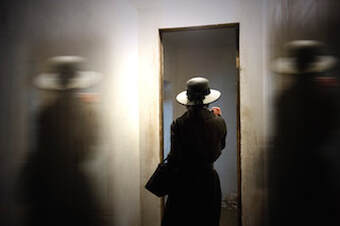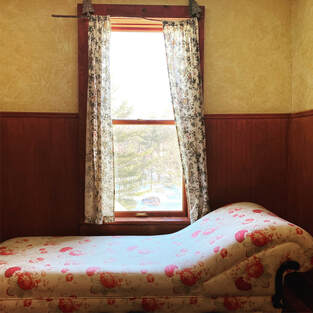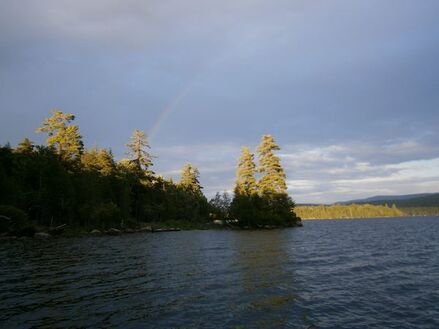|
3/26/2023 My Segmented Reality Photo by Monica Silva on Unsplash Photo by Monica Silva on Unsplash I'm a mother, wife, educator. I'm a writer. Although I try to remain in the present, I find my mind wandering to the depths of my imagination, attempting to tease out the next scene in my novel, a character flaw, joy, despair. I am stretched to capacity to create. Between lesson plans on critical thinking, what to make for dinner, how I'm going to kill off one the characters in my novels, my mind has limited time to stay in the moment. Even in the car, while driving to and from different campus sites I listen to podcasts, gleaning inspiration on writing, marketing, thinking. Oprahs's Super Soul Conversation reminds me what I should be doing: "Time to be more fully present.....starts right now." I'm soooo sorry Oprah - I listen to your podcast once a week, gaze at the rural landscape streaking past my window, warm earth interspersed with golden corn stubble from last year's harvest, a flock of white geese taking flight, sparkling like dust motes in the March sun. And oh, what did Amy Purdy just say about resilience? I was framing the moment for a scene in my next novel. I can't be the only one with a creative mindset trapped in the mundane day-to-day responsibilities that keep the family going, the heater operating as winter clings; I learned from a New York Times article, it's true. Many famous artists and writers maintained separate, working lives. Does it mean they produced better art? I know I feel a pressure to create whenever there is a moment: an hour on a Saturday, winter break, spring break, summer. I develop timelines around my school schedule, can I get to 50k words by May? How many weekends and breaks do I have? How much grading to do? Will one of my daughters be in town for the weekend? If I had more time, if my life weren't segmented into pieces of me, I'm not sure I'd be any better at my craft. As someone close to me once said, 'you work better under pressure, with deadlines'. I don't meander once I sit down to write, the words come to me, have been building over time, while driving, in my journals, in my dreams. My characters speak to me. And I don't let them down. 6/23/2022 1 Comment Finding Purpose I'm revisiting blog posts from the past and this one struck me because I just finished launching my fifth novel and this same feeling of loss can be overwhelming. If I let it be. This morning I was listening to Ann Lamott's book Small Victories: Spotting Improbably Moments of Grace, and her first lines just jolted me: "The worst possible thing you can do when you’re down in the dumps, tweaking, vaporous with victimized self-righteousness, or bored, is to take a walk with dying friends. They will ruin everything for you." I have not, I must admit, recently walked with a friend who is close to death, but I could relate to what Lamott was saying. Lately I have been wallowing a bit too much in self-pity, for no reason whatsoever except perhaps because I have completed my novel and although I'm working on the next, I definitely feel a sense of loss. And, I must admit, although I never started on this journey for the accolades, (and most obviously not for the money) there are moments when I wish that everyone I meet at the coffee shop, or passing by on the street would just say to me: "Hey, I heard you wrote another book. Congratulations," even if they have never read any of my work. I was at a picnic a few weeks ago and something like this happened and I was amazed at how much it lifted my spirits. A man came up to me, someone I know through my children, and he told me he had read one of my novels: Ephemeral Summer, and he loved it. I was a bit shocked. It is a coming of age story and the target audience would be his college-age daughters. "Everyone in the family has read it," he told me, "We loved it." I'd like to believe I'm not vain. But maybe I am. Or maybe these feelings I'm experiencing are meant to teach me something. How often I have neglected to tell someone that what they did or are doing is worthy: my friend who spent a year volunteering on a political campaign for a candidate I didn't plan to vote for; or another, who spent 6 months learning to become a yoga instructor. And then there is my friend who opened her own shop; and another friend who drove almost every weekend this past spring, over 11 hours in the car, one way, to watch her daughter play college ball. Finally, there are more than a few, who have had to sit by the side of their loved ones while they undergo treatments, trying to keep the faith. What dedication. My own family members have started new jobs, struck out on their own, or started up support groups. Congratulating them, or even making some commentary on their hard work is something I think, I should remember to do, if for no other reason than because they are trying. They are living life the way it was meant to be lived: with purpose. 4/8/2020 Enough Already! Main entrance NY Public Library. Main entrance NY Public Library. In a interview on the History Author Show podcast about the Durant Family Saga, the interviewer asked me a question that had me stumped: If you could fill any gap about this fascinating family after three novels, what would you choose? Of course, there’s more I could have uncovered about the Durants to turn my trilogy into a series. I've received emails from people who were reading my books and my research journey blog. They offered me tidbits of information, leads to follow, contact information of descendants with interesting histories of their own. But for me, enough was enough. I’d spent five years of my life researching this Gilded Age family. I had traveled to several libraries and museums on the east coast of the U.S., and visited the Isle of Wight in England. At some point authors of historical fiction rely on conjecture. It is the lens we use to offer our interpretation of events given the information we have on hand. Indeed, at the end of the trilogy, in the novel, The Night is Done, the narrator, a historian, remarks: I’m sure that in the future, someone will come along and find gaps in my research. It’s the historian’s curse. Our job is to sift through the tall tales and determine what’s worth including and what’s best left as fodder for others to chew on. The truth is found in the abyss of the unknown. If my readers believe it’s me, the author saying these words, they aren’t far off. I put myself in the head of the narrator, a historian, tracking down and interviewing an elderly member of the Durant family, and by the time I was done writing the last book in the trilogy, it was how I felt. We read historical fiction to discover history in an interesting and entertaining fashion. Authors of this genre are all too aware that some research could take up a lifetime and if we wait for all the facts to be known, the stories would never get written. This is especially true as libraries, newspapers and museums digitize their collections making them more accessible to the public, uncovering new details and facts about historical events along the way. There are always new stories to tell, and I have moved on to tell them. My latest work in progress is about the men of the US Civilian Conservation Corps, who planted over a billion tree seedlings in the US during the Great Depression. The story revolves around the families who once lived in Cades Cove, a cultural heritage site at the Great Smoky Mountains National Park. After doing research about these families, I felt compelled to tell their stories. And I hope to have this novel published soon.You can read the first couple of chapters here. 3/10/2019 This Too Shall Pass A friend--photographer--told me he didn't like to take pictures of raibows, they were too ephemeral he said, not meant to be photographed. I happened to catch this one over the point by Silver Beach on Raquette Lake while sitting on the porch of a cabin I rented. It's faint, but we all know what it feels like to see a rainbow in the sky. Even though it's fleeting, we just sit and stare until it goes away, hoping to hang onto that magical feeling it brings for as long as we can. Maybe that's why photographers chase rainbows, sunsets, full moons, shadows in the woods. Why artists paint capture scenes and authors write about them. These moments are why people create; to make something last, a feeling, an experience, a moment in time.  There's a poem called This Too Shall Pass Away, written by Ella Wheeler Wilcox 1900 which refers to a story about an ancient King who asks his sages to find words of wisdom that would guide him. One of them brought back a ring with the saying 'this too shall pass' inscribed inside (or so various versions of the story go). The meaning, that all things are temporary, much like the rainbow, is hard to swallow. How can this moment of joy be taken away? Yet, the same goes for those times of sorrow. It is only temporary. If only we could remember this when things seem so bleak. As I work on my novel about the Durant family I realize this may be what they were striving for, to leave a legacy, even if it wasn't in the form of wealth. The Durant's were creators. William built Great Camps in the Adirondacks, that would withstand the elements of the Northern Woods. Ella Durant published her poetry. Their father, Dr. T.C. Durant built railroads across the country. I see how all of it, the hard work, the drive to perfection, to discover more about how to turn a vision into reality - all of it - is an attempt to fight that adage that this too shall pass. Maybe, what drives the creator of such works, is an attempt, like Ozymandias, to leave a behind a legacy that fights back at time. Maybe that's why I write. 7/23/2018 The Mountains I've Climbed While Writing Why am I doing this? As a writer, this question pops into my head all of the time, especially when I am doubting whether all the effort I've put into my work with play out. You know, like I'll win an award, sell enough books to pay my mortgage one month, grab the attention of a literary agent or better yet, a publisher. It can be a lonely existence inside my head; these thoughts swirling with no place to land. I was reminded of this just recently while waiting for a response to a query I sent out to some agents. What if they have no interest in my work? The rejections and doubt can get rather depressing. And then I was reminded of a quote from a book that I've read more than once: Zen and the Art of Motorcycle Maintenance by Robert Pirsig. “Mountains should be climbed with as little effort as possible and without desire. The reality of your own nature should determine the speed. If you become restless, speed up. If you become winded, slow down. You climb the mountain in an equilibrium between restlessness and exhaustion. Then, when you’re no longer thinking ahead, each footstep isn’t just a means to an end but a unique event in itself. This leaf has jagged edges. This rock looks loose. From this place the snow is less visible, even though closer. These are things you should notice anyway. To live only for some future goal is shallow. It’s the sides of the mountain which sustain life, not the top. Here’s where things grow." |
AuthorSheila Myers is an award winning author and Professor at a small college in Upstate NY. She enjoys writing, swimming in lakes, and walking in nature. Not always in that order. Archives
April 2024
CategoriesAll Adirondacks Algonquin Appalachia Award Cades Cove Canada Chestnut Trees Christmas Civilian Conservation Corps Collis P. Huntington Creativity Doc Durant Durant Family Saga Emma Bell Miles Finger Lakes Great Depression Hell On Wheels Historical Fiction History Horace Kephart Imagination National Parks Nature Publishing Review Screenplay Short Story Smoky Mountains Snow Storm Stone Canoe Literary Magazine Thomas Durant Timber Wilderness World War II Writing |
|
|
All materials Copyright 2022
Any reproduction, reprint or publication without written consent of author prohibited. |
 RSS Feed
RSS Feed